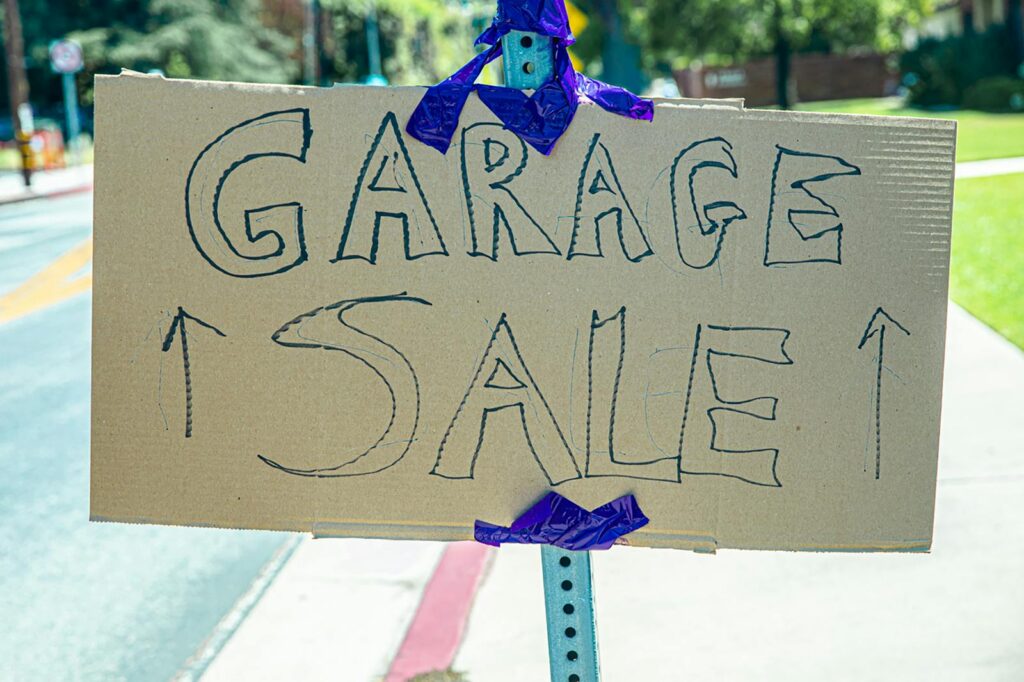
“It’s always consoling to know that today’s Christmas gifts are tomorrow’s garage sales”. -Milton Berle
Imagine a sunny spring day, you are driving around town looking for Garage Sales or Estate sales that were listed on Social Media. You stop at a house, and see tables lined up with “Stuff & Things”. You glance at the objects and depart looking for the next sale. At the next sale, you see some items that look like it might be of value, but are not sure. You move on to the next sale.
What are treasure hunters looking for? Jewelry for its scrap gold or silver value watches & certain decorative items like lamps, travel trunks from the 1920s, antique furniture, sports cards, firearms and certain sports or other memorabilia that are of interest to collectors. These treasure hunters are focused and move quickly from sale to sale. They are also the first at your door usually at first daylight.
What are the chances of Finding a Hidden Treasure? You are looking for a needle in a haystack. Let’s look at who the garage or Estate Sale sellers are and what is their demographics.
The Silent Generation of those born between 1928 to 1945. Persons in this age group have acquired a lot of “Stuff & Things” and usually have larger houses to store all their possessions. They are going to have books, records, clothes, decorative items, glass and dishware and lots of furniture. If they had anything of real value, the chance that they still have it is rare. It was either sold or passed on to family members.
The Boomer Generation are those who were born between 1946 to 1964. This generation will be receiving the inheritance of the Silent Generation and all the contents of a household. The Boomer Generation followed the same lifestyles as their parents. Large houses, with rooms hardly used, only to store stuff. They might not have the same tastes, but they do have a lot of whatever can fill a house. Contents of a household might contain decorative and cultural items, furniture, items of and more of a more luxurious nature since they had more disposable income. They also grew and lived in the most prosperous years where all asset classes have increased in value.
Their children; Generation X are those who were born between 1965 to 1980. They were more concerned with the quality of life and lifestyles. Gen X’ers are described as active, happy, and achieving a work-life balance. They have been more broadly credited as entrepreneurial, and productive in the workplace. Their material requirements were less than their parents. They tended to have small housing needs, as the requirement for storage was reduced. If you see a Gen X garage or estate sale, they are mostly trying to sell the contents of their parents and or grandparents.
Millennials are born between 1981 and 1996. Most of the people in this age group will not reach the same level of prosperity as their parents or grandparents. If they have a home, it will be smaller, with very little “Stuff & Things” They will not have spare rooms just to store things. They only buy what they need. For a Millennial, a small condo is an option for many.
The kitchen, living and bedroom will be minimalist. They will not have collections, photo albums, books, records and decorative pieces that will collect dust. They will have a laptop and smartphone, and all photos, memories will be stored on those devices. Surviving our new financial reality and having travel experiences are key. They might be buyers of needed items at garage sales, but will not have their garage sale. Unless they are conducting one for their parents.
There are finds of a lifetime out there. It will be a hit-or-miss opportunity. The most important consideration is the following.
How much time is spent looking for an item to resell? Time is money. Could you use your time more effectively?
Driving around to every garage or estate sale takes gas, and wear & tear on the car. These are hidden costs that have to be accounted for.
If you stop for Breakfast, Lunch or Supper, these are all added costs.
Then there is the cost of buying items, which might allow you to make a profit on its resale value.
In the end of all your effort, you might come out ahead, or you might have spend hundreds of dollars with no immediate financial return.









